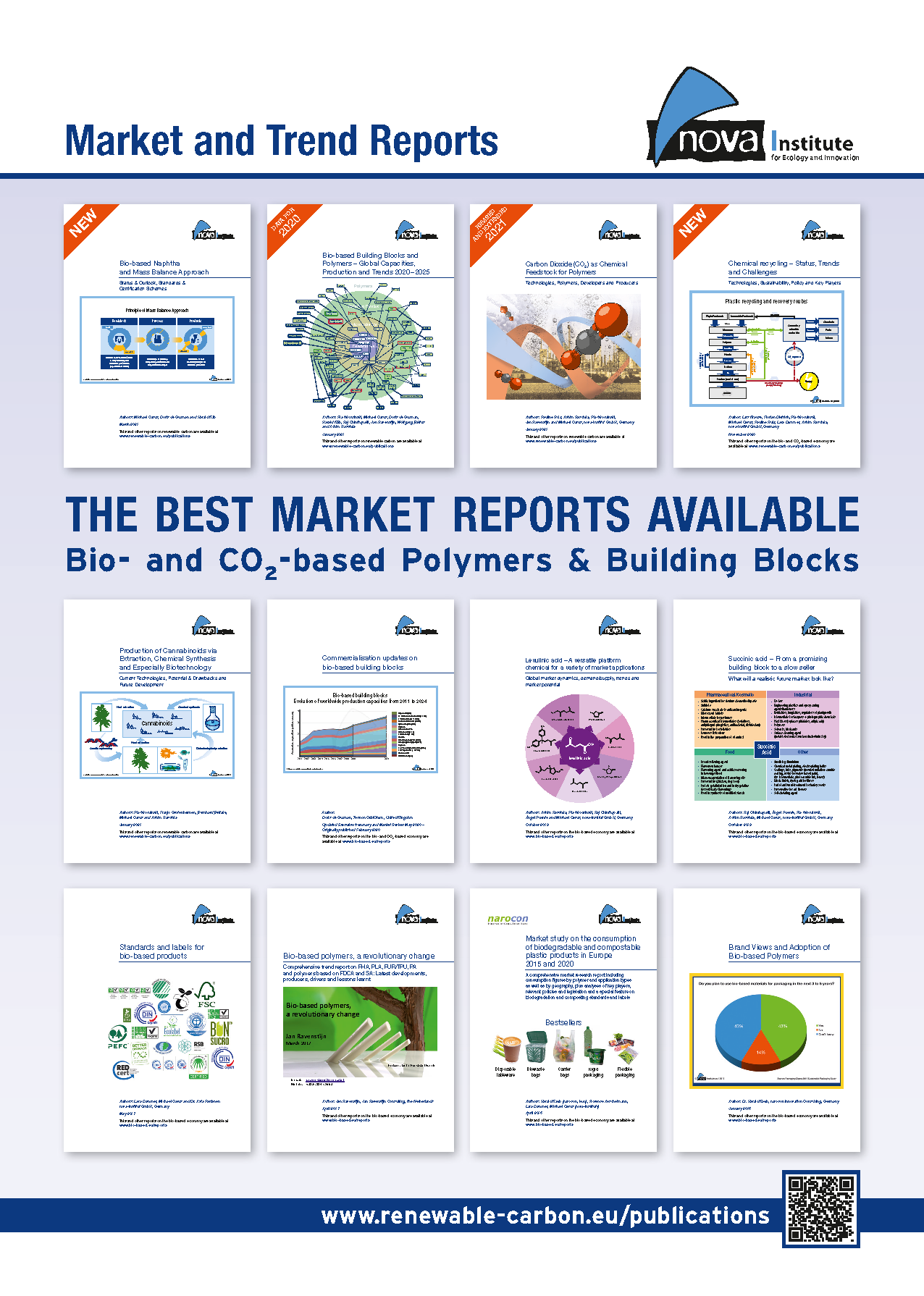There is currently a lot of interest in renewable and green chemistry, bio-based chemistry, CO2 Capture and Utilisation and chemical recycling. Refineries and verbund sites of large-scale chemicals are under considerable pressure; the biofuel industry is looking for new markets in chemistry and start-ups are looking for investors.
The problem: there is hardly any data to make a robust assessment of these new and developing markets. What technologies, chemicals and materials are already available and at what maturity level? How big are the markets and the demands? What are the production costs and target prices and which premium prices can be achieved in which applications and for how long? And finally, often the most significant question: How does the competition look like, how many companies are investing in the same or competing markets? Specialised expert knowledge in these areas is needed and this is where Achim Raschka, Head of the department Technology & Markets at the nova-Institute, and his team can score. For many years now, they have focused on the emerging niche markets of renewable carbon that are currently becoming mainstream.
Visuals and PDF file in English and German available at: www.nova-institute.eu/press/?id=276
Raj Chinthapalli, a chemical engineer and experienced market researcher at nova, describes his method of single-client reports: “Of course, we have access to several databases on markets and prices, some of which contain quite astonishing details. But more important are our ongoing market surveys, where we follow hundreds of companies and their activities. To be able to interpret all the data correctly, our networks come into play. Only personal contact with experts from many sectors and along the value chain brings deep understanding to the data.”
What are the topics that repeatedly come up?
Producers of ethanol from biomass or CO2-rich off-gases together with plastic producers and refineries are increasingly interested in efficient ways of ethylene production and existing technologies. Producers of HVO advanced biodiesel can also supply bio-naphtha with a few modifications and need to find markets. Newly developed and dedicated chemicals and polymers like PEF need to find their way to the markets, and companies want to know how these will develop in future. Brand owners are not only interested in the immediate polymer procurement intelligence, but also in a secure upstream supply chain for various chemical building blocks. Producers of packaging materials and consumer goods are looking for more sustainable and renewable carbon-based solutions for their products with the same or better properties. Companies with potential feedstocks like bio-wastes or CO2-rich off-gas streams are looking for technologies to valorise these and need to know about available technologies, costs and potential markets.
Companies have a great demand for information and analysis of this kind, as it can have an impact on technology choices, competitiveness and the environmental sustainability profile of their companies and brands.

In addition to the single-client studies, the nova-Institute also offers comprehensive market and trend reports on bio- and CO2-based building blocks and polymers, bio-naphtha and chemical recycling, which are updated regularly. With the allowance code novaSumSpec20 you get a 20 % discount on all 21 market reports available. Here you can find all reports: www.renewable-carbon.eu/publications/?search=1&publication-type=commercial-reports.
For further questions, please contact Mr Achim Raschka, Head of the Department “Technology & Markets”: achim.raschka@nova-institut.de.
Source
Supplier
Share
Renewable Carbon News – Daily Newsletter
Subscribe to our daily email newsletter – the world's leading newsletter on renewable materials and chemicals










